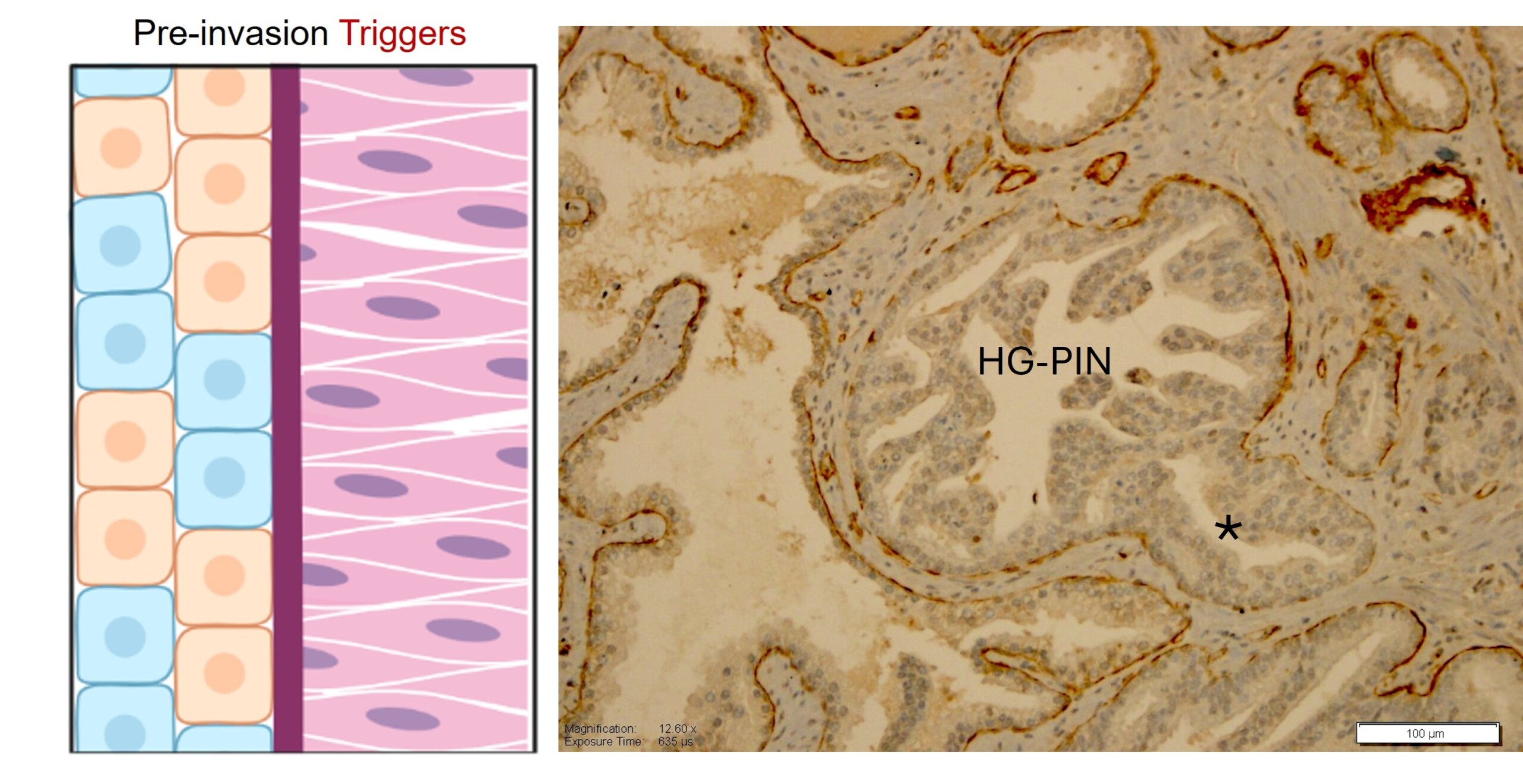Research
Pre-Invasion: Triggers

In the initial stages of PCa, there are many triggers that promote invasion, including the formation of high-grade prostatic intraepithelial neoplasia (HG-PIN). The image on the right shows human prostate tissue stained for integrin α6β4 (CD49f, CD104 brown) and specific for the basal cell compartment that contains the stem cells for the gland. The loss of the basal cell phenotype results in budding of HG-PIN into the muscle stroma (asterisk) as a first step of invasion.
The normal prostate gland has a simple secretory epithelium within contractile smooth muscle. Organ-confined cancer lesions are termed T1 and T2 stages. At T3, the cancer invades into and through 1-2 mm of a dense smooth muscle layer that is unique to the human organ. This step defines extraprostatic extension (EPE) and defines aggressive lethal disease that is capable of metastasis.
During the initial stages of prostate cancer progression, a defective glandular structure known as high-grade prostatic intraepithelial neoplasia (HG-PIN) forms. This condition is characterized by focal loss or attenuation of the basal cell layer and extracellular matrix (ECM). Additionally, there is a loss of integrin α6β4 expression and its corresponding ECM ligand laminin-332, which comprises the α3Aβ3γ2 chains.
The mechanism behind the transition of organ-confined tumors to aggressive forms is unknown. We hypothesize that aerotaxis, where tumors move into and through oxygenated contractile muscle is a “gauntlet” that triggers aggressive disease capable of reaching and surviving the bone metastatic niche.
-
Ryniawec JM, Coope MR, Loertscher E, Bageerathan V, de Oliveira Pessoa D, Warfel NA, Cress AE, Padi M, Rogers GC. GLUT3/SLC2A3 Is an Endogenous Marker of Hypoxia in Prostate Cancer Cell Lines and Patient-Derived Xenograft Tumors. Diagnostics (Basel). 2022 Mar 10;12(3):676. doi: 10.3390/diagnostics12030676. PMID: 35328229; PMCID: PMC8946944.
-
Harryman WL, Warfel NA, Nagle RB, Cress AE. The Tumor Microenvironments of Lethal Prostate Cancer. Adv Exp Med Biol. 2019;1210:149-170. doi: 10.1007/978-3-030-32656-2_8. PMID: 31900909.
